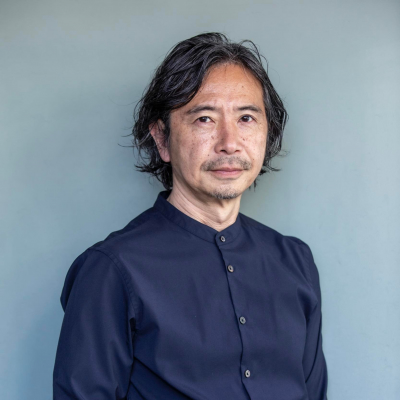
COLUMN
Search by keyword
- All
- Ryotei & Restaurants
- Lodging/Hotels
- Producers
- Technology
- DX (Digital) & SNS
- City Planning
- Utilization
- Gastronomy and Culinary
- Japanese Nature
- Japanese history and traditional culture
- Japanese Food Culture
- Agriculture
- Fisheries
- SDGs
- Local production for local consumption
- Foreigner Activation
- Experience
- Overseas Expansion
- Fermentation
- Public-private partnerships and collaborations
- Sake
- Community Revitalization
- Spirituality
- Japan of the Sea
- Mountain Japan
VIEW ALL
-
Read more

19 Understanding Value Shifts in the New Generation Through Social Listening
Today, more than 90% of the world’s populated areas are always connected to the internet. People interact digitally through social media and other online means, and capitalized on their reputations through shares, likes, and comments. This reputation permeates society as capital, and can be called evaluation capitalism . Until now, people have engaged in economic, lifestyle, cultural, and social activities using monetary capital, labor capital, social capital, industrial capital, and other capital as yardsticks. In today’s society, however, visualizing and analyzing this so-called evaluation capitalism, for example, what people around the world value, what they are interested in, and how their values have changed, is effective for recognizing the current state of society and predicting the future. The COVID-19 pandemic in particular has drastically shifted in people’s values and driven the creation of new frameworks for social systems, economic conditions, and national policies. Moving forward, my aim is to strengthen the three scientific viewpoints and use them to create a framework for the next generation of Cool Japan strategies. In Japanese, these three viewpoints are known as tori no me (bird’s-eye view: overarching analysis of the ecosystem), mushi no me (insect’s-eye view: observational analysis of mechanisms), and sakana no me (fish’s-eye view: comparative analysis of flows and trends). The Intellectual Property Strategy Headquarters at the Cabinet Office and the Cool Japan Public-Private Partnership Platform (CJPF) have released an infographic summarizing the key findings of their joint global social listening survey. While analysis of the results yielded a variety of findings, simply put, the survey indicated that the SC era is progressing, for example, sustainability, social, circular economy, and community. As the major shift in values which can be called the first year of green Cool Japan activities is needed, CJPF is reviewing its whole strategy with food and food culture as a starting point. Specifically, we have outlined three steps: discovery, empathy, and co-creation. Using both tangible and intangible resources of Cool Japan, we hope to create a companionate framework in which people from around the world and in Japan can transcend barriers and work together to create the next generation. We believe that reorganizing Japan’s cultural value from a global perspective and a future-oriented approach, and upcycling society and the economy on a regional scale are the new Cool Japan strategy of the future. As the first step, we have launched our on-demand media platform cjpf.jp to analyze so-called […]
-
Read more

15 A “Delicious” Economy to Change the Future of Society—Living in a Country with the Best Food in the World
Japan can perhaps be called the country with the best food in the world. In a global survey asking which countries people most want to visit after the pandemic, Japan was number one among people living in Asia and number two among those in Europe and the US. In both cases, Japan was at the top end of the list. Moreover, the number one reason people wish to visit Japan is said to be for its food. As this suggests, while many foreign visitors to Japan come in search of delicious food, Japan in fact has the highest number of Michelin-starred restaurants in the world. The total number of stars and three-star restaurants in Tokyo far exceeds that of Paris, which can be called the home of Michelin star framework. A characteristic of the restaurant industry in Japan is that many Japanese chefs have honed their skills not only in Japanese cuisine, but also in French, Italian, and other foreign cuisines, and have earned Michelin stars. Further, outside of Michelin stars, there are countless numbers of Japanese chefs who have won first place in international cooking competitions such as the Pasta World Championships and the World Pizza Championships. We can therefore say that Japan is the country that evolves tastes of other countries in more delicious way. Elsewhere, Japan has an abundance of delicious, seasonal foods from both the sea and the mountains. Thanks to an excellent supply chain, customers can consume these ingredients while they are still fresh. Meanwhile, advanced fermentation techniques developed in the preserved food culture have broadened the range of umami flavors. There are many positive aspects of Japanese food, such as the diversity of food culture, which varies from region to region, including traditional and local cuisine, and the high level of “seasoning technology” in factories producing seasonings and processed foods. Alongside its “deliciousness” technology, Japanese food is also highly regarded worldwide for its health benefits and for its lower environmental impact compared to Western food. In 2005, the number of Japanese restaurants overseas stood at approximately 25,000. In 2010 this number doubled to 50,000, and expanded to 150,000 in 2020. With such wonderful characteristics, it is essential that we seriously address how to maintain and develop our globally respected food culture. Doing so can help Japanese food culture maintain its dominance over the centuries. In a future of exploding world population, food will become […]
-
Read more

10 The Course of Action for Plant-based Gastronomy—Our World in 2050
The outbreak of the COVID-19 pandemic in 2020 has led to drastic changes in today’s lifestyles and habits, and there is a sense throughout society that we have entered a new phase. At the same time, we are also beginning to feel the impacts of worldwide social issues such as global warming in our daily lives. For example, in addition to torrential downpours becoming the norm in recent years, every year we are seeing typhoons of record-breaking scale. We are also experiencing major changes elsewhere, with declining fish catches, seasonal changes, and poor harvests of previously stable vegetables and other crops. As civilization has advanced and the quality of our lifestyles has improved, unknowingly, we have also been causing huge damage to the global environment. Further, with a global population explosion on the horizon, some say that we will require two earths if we are to continue with our current way of life. Against this backdrop, countries across the world are coming up with diverse ideas to tackle these environmental issues, engaging in various initiatives to rebuild the planet. In gastronomy, eating is the common denominator among people worldwide that is essential to sustaining life. I believe that food can provide one solution to these environmental issues, and have realized the importance of promoting and developing environmentally friendly lifestyles through food. A plant-based diet is one solution that can have an effective outcome for the global environment. This plant-based diet has been closely related to the Japanese diet since ancient times. One example is shojin ryori, a vegetable-based Buddhist cuisine, which is a key part of Japanese food culture. Shojin ryori was first introduced to Japan in the 13th century. A lack of logistics at the time meant that individuals would source local, seasonal ingredients themselves, only taking the necessary amount to ensure harmony with nature and show their appreciation for nature’s blessings. This was a self-sufficient, sustainable way of life. This ancient approach can help us rethink the gluttony in modern society. My hope is to promote lifestyles that can have a positive effect on both health and the environment. With the knowledge that I can help people improve the environment in a stress-free manner through dining, whether at home or restaurants, I have therefore taken action. One initiative that I have developed for society is the 1,000 Vegan Project, through which we aimed to switch from regular meals […]

